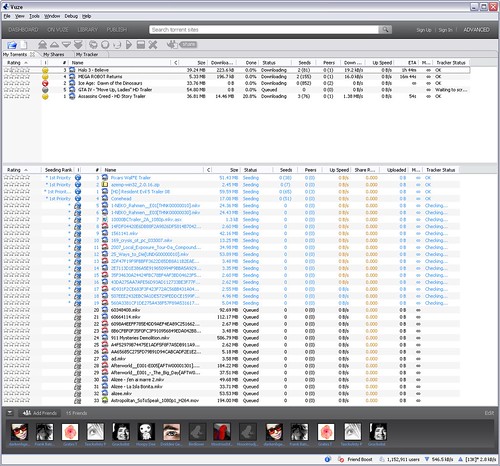Karl Wolfgang Deutsch, proud owner of a contemporaneously sinister mustache, was an international relations scholar of rare influence, insight, and impact. Among his works, the one with possibly the most bearing on Imagined Communities must certainly be his long and very nearly always tedious study of 'links' between North America and Western Europe. In an era where telephones were still considered quite vulgar for home use, Deutsch compiled a quite exhaustive collection of practically all forms of trans-Atlantic communication - letters written to families, bills and payments made across Western Union, travelers looking for old London Town, immigrants peering through the fog for Lady Liberty - and with an authority that can only come from some ominous looking books (and not a hastily scribbled blog post) concluded that the two sides of the Pond were getting closer. Not geographically, but through the sheer volume of linkages that each side were shuttling back and forth; a community, if you will, was forming. In a roundabout way, and making some brave theoretical leaps, today scholars may say: hence, NATO or hence, the G-8 or, more grandiosely, hence, the West.
A classic 50s mustache, a tweed suit, and some German-Czech guy.
But today, we have the Internet. Even when factoring in the bandwidth capacity that a typical trans-continental 747 may shift, the raw amounts of data that zoom from point to point on this twinkling globe far outstrips what Karl Deutsch could have imagined (and hence, conspiratorially, Echelon-IV). Literally trillions of dollars flies across these lines of communication on any given week - traders make the world go round. But at the same time, a billion internet kittens purr on screen, a sneezing panda makes squees go off in a thousand slumber parties, porn is streamed one-handedly onto HD monitors, and I watch last night's Daily Show. The Internet promises and, to an extent, delivers an international imagined community on a scale that was impossible even in the grandest of empires.
But unfortunately, that's all also complete and utter bunk.
Information technology does not promise the ideal of free information. We are still constrained by some archaic national boundaries - even online. Hulu does not work outside the United States - it's fine in Buffalo, NY but just wait till you get to Toronto; it's epic fail. Typing in amazon or google.com brings you to different and differently configured websites depending on where you type it in from (or with assistance, dependent on what you set your proxy to). And let's not even begin with that insane DVD-regional coding or some of the more obtuse downloading laws.
Arrrrr!
One thing, however, does haunt our conception of an internet-international world and that is the pervasive use of English. Out there in the wilds of internetdom, where Russian hackers mingle with Vietnamese WoW-gold farmers, and the occasional out-of-place American college-kid goes to trade information on, the lingua franca (ah-ha) is English - horribly spelled, badly punctuated, and generally lacking any style, but brutally efficient and understandable. This is the language, allegedly, of Shakespeare and Chaucer on a Mexican Spring Break - or to put it another way, English Gone Wild.
But what does this suggest? That English, as a language is international? Yes, we have known that for years. But does that make the users any more international-esque. I somehow doubt it. There is a functional global language and then there's the vernacular. One could make a claim that there will be enough English, in smatters, for a relatively patient young Australian to make-do with a bowl of snarkily-prepared noodles in Xi'An, but English, as transmitted by the Internet, is not a sign that English is on the verge of being a world-conqueror.
And then can be no claims that it puts the UK or the USA in any more a dominant position. They do not own the language the same way that Japan still retains Japanese or that the French hold dying-French. English has become free - a cumbersome way of relieving to another some set of highly pertinent details; a burden to convey what the other would not understand in Urdu/Thai/Finnish. Unlike the "owned" languages of Anderson's proto-nations, English was long ago sacrificed for utility. To suggest that the spread of English is imperial is to make the same accusation of the metric system (run away! meters!).
Karl Deutsch would probably be tickled pink by all of this - if it didn't absolutely bollocks up his findings. Communication, on the internet-plane, is still very much a rich-world affair with most of the information being channeled up and about through the thickest, richest, data cables. But the language that chatters away on it; what a story!
- Aaron Wee
-----------------------
Sadly, this post was devoid of fashion and philosophy. For fashion and philosophy, click here.


1 comment:
I see that President Obama wants everyone should learn a foreign language, but which one should it be?
The British learn French, the Australians study Japanese, and the Americans prefer Spanish.
Yet this leaves Mandarin Chinese out of the equation.
Your readers may be interested in http://video.google.com/videoplay?docid=-8837438938991452670
A glimpse of Esperanto can be seen at http://www.lernu.net
Post a Comment